Plastic Pollution
Crude Oil Prices Trend
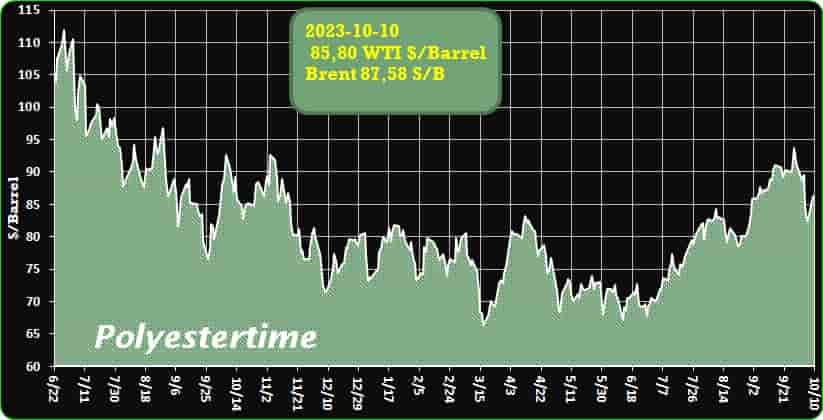
Crude Oil Prices Trend by Polyestertime
Plastic Recycling Technology: A Solution for the Plastic Pollution Crisis
Plastic is one of the most widely used materials in the world, but it also poses a serious threat to the environment and human health. Every year, more than 380 million tonnes of plastic are produced globally, but only 9% of it is recycled into new plastics. The rest ends up in landfills, incinerators, or the oceans, where it can harm wildlife, ecosystems, and human health.
To tackle this problem, scientists and engineers are developing new ways to recycle plastic waste more efficiently and sustainably. One of these methods is chemical recycling, which involves breaking down plastic molecules into smaller units that can be used as raw materials for new products. Plastic Pollution
Q How does chemical recycling work?
A. Unlike mechanical recycling, which melts and reshapes plastic waste into new products without changing its chemical structure, chemical recycling transforms plastic waste into different substances. There are several types of chemical recycling technologies, such as pyrolysis, gasification, hydro-cracking, and depolymerisation.
Pyrolysis is a process that heats plastic waste in the absence of oxygen, producing a mixture of gases, liquids, and solids. The gases and liquids can be used as fuels or feedstocks for making new plastics or other chemicals. The solids can be used as carbon black, a material used in tyres, rubber products, and ink.
Gasification is a process that converts plastic waste into a mixture of hydrogen and carbon monoxide, known as syngas. Syngas can be used to generate electricity or to produce synthetic fuels or chemicals. Plastic Pollution
Hydro-cracking is a process that uses hydrogen and a catalyst to break down plastic waste into smaller hydrocarbon molecules, such as propane or ethane. These molecules can be used as fuels or feedstocks for making new plastics or other chemicals.
Depolymerisation is a process that reverses the polymerisation reaction that forms plastics from monomers. Monomers are the building blocks of plastics, such as ethylene or terephthalate. By using heat, pressure, or catalysts, depolymerisation breaks down plastic waste into its original monomers, which can be purified and reused to make new plastics.
Q What are the benefits of chemical recycling?
A. Chemical recycling offers several advantages over mechanical recycling. First, it can recycle plastics that are difficult or impossible to recycle mechanically, such as mixed or contaminated plastics, multilayer plastics, or plastics with additives or colours. Second, it can produce high-quality recycled materials that have similar properties to virgin materials, avoiding the loss of quality or performance that often occurs with mechanical recycling. Plastic Pollution
Third, it can reduce greenhouse gas emissions by saving energy and resources that would otherwise be used to produce new plastics from fossil fuels.Q
Q What are the challenges of chemical recycling?
A. Chemical recycling also faces some challenges that need to be overcome before it can be widely adopted. One of them is the high cost and energy consumption of the processes, which depend on the type and quality of the plastic waste and the desired output. Another challenge is the availability and accessibility of suitable plastic waste streams that can be collected and sorted for chemical recycling. A third challenge is the regulation and standardisation of chemical recycling processes and products, which vary across different countries and regions. Plastic Pollution
Q How can chemical recycling help solve the plastic pollution crisis?
A. Chemical recycling is not a silver bullet that can solve the plastic pollution crisis alone. It needs to be combined with other strategies, such as reducing plastic production and consumption, improving plastic design and quality, enhancing mechanical recycling systems and infrastructure, promoting circular economy principles and practices, and raising awareness and education among consumers and stakeholders.
However, chemical recycling can play an important role in closing the loop of plastic waste management and creating a more sustainable future for plastics.
By transforming plastic waste into valuable resources that can be reused again and again, chemical recycling can help reduce environmental impacts, conserve natural resources, create new economic opportunities, and support innovation and development in the plastics industry. Plastic Pollution
References:
1 Recycling technologies • Plastics Europe
2 The world’s first ‘infinite’ plastic – BBC Future
3 Plastic Recycling Technology: What are the Environmental Benefits …
4 Plastic pollution: how chemical recycling technology could help fix it
5 New process could enable more efficient plastics recycling
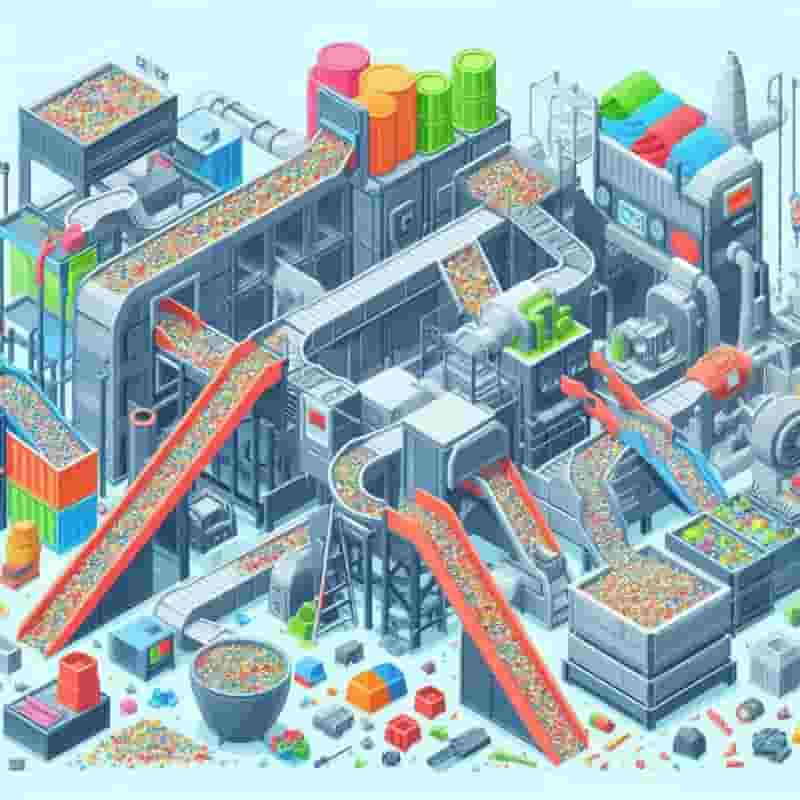
EU launches trade attack against China in a war it can’t win
The European Union is preparing new anti-China measures. BYD is sticking Tesla to the crown, but sales are also increasing at other Chinese EV builders. The large state-owned enterprises are investing heavily in emerging high-tech sectors. Human-like robots are in the spotlight, but the gaming sector is also catching up on the AI road. We end with a chips section. Plastic Pollution
As part of its economic security strategy, the EU Commission has unveiled 4 technologies in which it seeks to de-crist: advanced semiconductors, artificial intelligence, quantum technologies and biotechnology. Although China is not mentioned in particular, it is clear who is targeted. The Commission is now going to flea by the end of the year to what extent the 27 Member States are exposed to risks. Ultimately, restrictions could be placed on the export or investment of European companies in high-tech sub-sectors that are classified as high risk. By next spring, four other technologies would be eligible. It involves advanced connectivity, navigation and digital technology-including IoT and blockchain-advanced sensor technology, space and propulsion technology, energy technology, robotics and advanced materials. of SCMP Plastic Pollution
EU Commissioner for Justice Reynders has revealed on the French BFM TV that the Commission is considering a similar investigation of the windmills by analogy with the investigation into government support for electric vehicles. Interest association WindEurope has been complaining stone and leg over Chinese competition FT for some time
The European Parliament, for its part, has approved an ‘anti-compulsive’ instrument that would allow Brussels to impose tariffs, quotas, export controls or market frostbites on countries that are believed to engage in economic harassment.
More…

Toray Expanding European Carbon Fiber Production Facilities
Toray Industries, Inc., announced that it has decided to expand French subsidiary Toray Carbon Fibers Europe S.A.’s production facilities for regular tow* medium- and high-modulus carbon fibers. This move will increase annual capacity at the Abidos plant (South-West France) from 5,000 metric tons annually, to 6,000 metric tons. Production is expected to start in 2025. Plastic Pollution
Demand for medium- and high-modulus carbon fibers is rising in Europe, driven by a push to move towards a net-zero society. This growth is mainly due to higher build rates for commercial aircrafts (secondary structures and engines), as well as centrifuge for energy production, satellites, and high-end automobiles. By boosting carbon fiber production capacity in Europe, Toray is responding to its customers’ demand for medium and high-modulus carbon fibers, as befits the market leader.
Toray has made sustainable growth pivotal to Project AP-G 2025, its medium-term management program. Accordingly, the company has developed solutions to tackle climate change with its carbon fiber composite materials. Toray will fully leverage its resources to help achieve a carbon-neutral economy by 2050, in keeping with its corporate philosophy of contributing to society by creating new value. Plastic Pollution
More…

World plastic production and consumption per capita
Plastic recycling is the process of recovering plastic waste and transforming it into new products. Plastic Pollution
There are different methods of plastic recycling, such as mechanical, chemical and direct recycling1. Here is a brief overview of each method:
- Mechanical recycling is the most common and widely used method of plastic recycling. It involves physically shredding, washing, melting and reforming plastic waste into granules or pellets that can be used to make new plastic products2. Mechanical recycling preserves the molecular structure of the original plastic, but it also reduces its quality and performance over time due to degradation and contamination3. Mechanical recycling is suitable for clean and homogeneous plastic waste streams, such as bottles or containers, but it has limitations for dealing with complex or mixed plastic waste, such as films or laminates2. Plastic Pollution
- Chemical recycling is the process of breaking down plastic waste into its basic chemical components, such as monomers, oligomers, oils or gases, using heat, pressure or catalysts2. Chemical recycling can then convert these components into new raw materials for the production of plastics or other products, such as fuels or chemicals2. Chemical recycling can overcome some of the challenges of mechanical recycling, such as dealing with mixed or contaminated plastic waste, and producing high-quality recycled plastics that can be used in demanding applications, such as food contact2. However, chemical recycling also has some drawbacks, such as high energy consumption, environmental impacts and technical complexity3. Plastic Pollution
- Direct recycling is a relatively new and emerging method of plastic recycling that aims to directly reuse plastic waste without changing its chemical structure or properties4. Direct recycling involves heating and compressing plastic waste into solid shapes that can be used as building materials, furniture or art objects4. Direct recycling can offer a simple and low-cost solution for diverting plastic waste from landfills or incineration, and creating new value from waste4. However, direct recycling also has some limitations, such as low aesthetic appeal, limited functionality and durability, and potential health risks due to leaching of additives or contaminants4. Plastic Pollution
The plastic recycling metric ton by 2022 is not easy to estimate, as there are different sources and methods of measuring plastic waste and recycling.
We can resume so :
- One source1 states that the worldwide production of plastics reached a staggering 390.7 million metric tons in 2021, and that only 15% of the global plastic waste was collected for recycling in 20191. Assuming that these trends continue, we can estimate that the plastic recycling metric ton by 2022 would be around 58.6 million metric tons (15% of 390.7 million metric tons).
- Another source2 provides a more detailed breakdown of plastic waste generation and management by region and application. According to this source, the global plastic waste generation was 353.3 million metric tons in 2019, and it is projected to increase to 375.8 million metric tons by 20222. The source also estimates that the global plastic waste recycling rate was 9% in 2019, and it is projected to increase to 10% by 20222.
- Based on these projections, we can estimate that the plastic recycling metric ton by 2022 would be around 37.6 million metric tons (10% of 375.8 million metric tons). Plastic Pollution
- A third source3 reports that of the 8.3 billion metric tons of plastics ever produced until 2015, only 9% has been recycled, and that the vast majority (79%) is accumulating in landfills or sloughing off in the natural environment as litter3. The source does not provide any projections for the future, but if we assume that the same recycling rate applies to the plastics produced in 2021 and 2022, we can estimate that the plastic recycling metric ton by 2022 would be around 35.2 million metric tons (9% of 390.7 million metric tons).
As you can see, these estimates vary widely depending on the data source and methodology used. Therefore, it is important to be cautious and critical when interpreting these numbers, and to consider the uncertainties and limitations involved in measuring plastic waste and recycling. Plastic Pollution
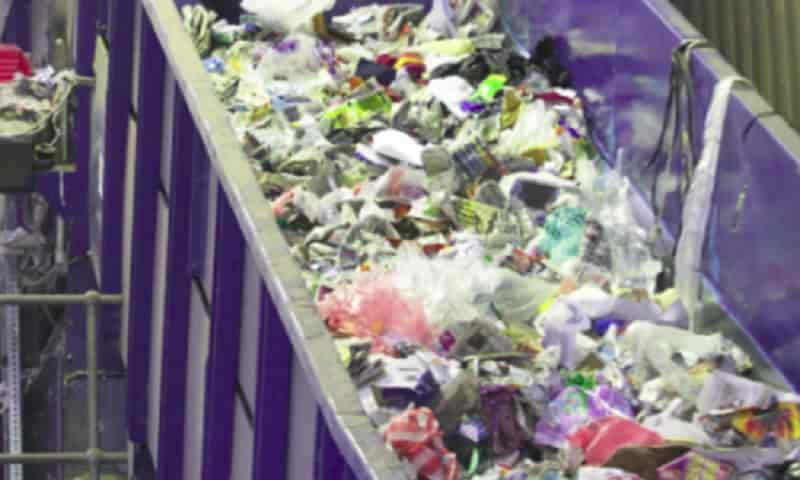
Saudi Arabia and Russia said they were continuing voluntary oil cuts to year end as tightening supply and rising demand support oil prices,said Reuters.
The Saudi and Russian statements come hours before a ministerial monitoring panel of the OPEC+ group of leading oil producers convenes online later on Wednesday. The panel, called the Joint Ministerial Monitoring Committee, can call for a full OPEC+ meeting if warranted but sources have told Reuters it is unlikely to tweak current oil output policy.
Oil prices continued a downward trend directly following the news with Brent futures falling $1 to $89.92 a barrel but they were trading at $90.40 a barrel by 0854 GMT. OPEC+, which comprises the countries of the Organization of the Petroleum Exporting Countries (OPEC) and leading allies including Russia, has been cutting output since last year in what it says is preemptive action to maintain market stability. Plastic Pollution
The U.S. and Western allies have argued that the world needs lower prices to support economic growth and the global economy. Saudi Arabia, the OPEC de facto leader, said it would continue with its voluntary oil output cut of one million barrels per day (bpd) for the month of November and until the end of the year and that it would review the decision again next month.
The kingdom’s production for November and December will be approximately 9 million bpd, the energy ministry said in a statement. “This voluntary cut decision will be reviewed next month to consider deepening the cut or increasing production,” the statement said.
Saudi Arabia first implemented the additional voluntary cut in July and has been renewing it monthly. It said in September the cut would last until year end but would be reviewed on a monthly basis. Russia in August said it would reduce exports by 300,000 bpd until the end of this year. Plastic Pollution
The Saudi and Russian additional voluntary cuts come on top of April cuts agreed by them and several OPEC+ producers, which extend to the end of 2024.

Borouge and Tadweer sign partnership to explore recycling opportunities in Abu Dhabi
Borouge, a leading petrochemical company that provides innovative and differentiated polyolefin solutions and Tadweer signed a Memorandum of Understanding (MoU) to explore opportunities in the management and adoption of best practices in waste management, sorting and mechanical recycling of polymers, said the company.
Tadweer, part of ADQ, is the sole custodian of waste management for the Emirate of Abu Dhabi and is committed to developing an integrated waste management sector and becoming a leader in extracting value from waste to contribute to national sustainability ambitions. Plastic Pollution
Borouge and Tadweer will explore further opportunities in polymers waste sorting for mechanical recycling and the development of a sustainable ecosystem, to secure the generation of high-quality polymer recyclates using different technologies. Furthermore, the partners will join forces to establish business development and benchmarking frameworks which unlock value added business opportunities through potential joint investments in brown and greenfield assets. The agreement reinforces Borouge and Tadweer’s leading industry positions and supports their circular economy ambitions.
Both companies will be collaborating in supporting local regulatory frameworks related to the sustainable and efficient management of polymer waste. This includes the launch of public initiatives and campaigns to boost awareness about best practices in polymer waste management and recycling. Plastic Pollution
Committed to driving circularity for a zero-waste environment, Borouge has increased the number of strategic partnerships with recycling companies and expanded its product portfolio of sustainable solutions. Today, Borouge has 18 partnerships across eight countries serving its key territories in the Middle East and Asia-Pacific, marking an important milestone in its ambitions towards realising its 2030 strategy.
Borouge is a responsible petrochemical company with a portfolio of sustainable solutions. The Company works with customers, suppliers and value chain partners to address global challenges, with a comprehensive roadmap to reduce emissions. In addition, Borouge collaborates with the Environment Agency – Abu Dhabi to combat a multitude of environmental issues related to waste management. Plastic Pollution
As part of its commitment to sustainability, Tadweer has built partnerships with leading global entities in Greece, Spain, Jordan, and more. These partnerships, which are focused on the exchange of knowledge and experience, contribute to driving a circular economy and achieving a sustainable future. Tadweer’s partners play a pivotal role in supporting the company to develop an integrated waste management system, in line with the UAE’s sustainability objectives.
More…
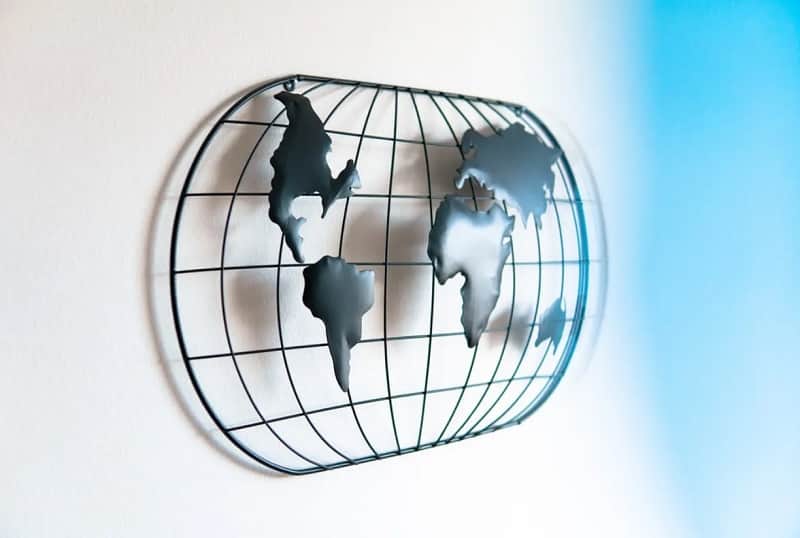
UK implements new restrictions on single-use plastics
Commencing on 1 October 2023, the sweeping ban marks a watershed moment in the global fight against plastic waste.
On 1 October 2023, England took a significant step in its fight against plastic pollution with the introduction of new regulations banning several single-use plastic items.
In a bid to address the escalating problem of plastic pollution and litter, the UK government has implemented a series of bans and restrictions on single-use plastic items, taking effect on Sunday 1 October 2023. Plastic Pollution
These measures, announced in January, will prohibit the sale of single-use plastic cutlery, balloon sticks, polystyrene cups and food containers across various sectors, including retailers, takeaways, food vendors and the hospitality industry.
Restrictions will also be placed on the supply of single-use plastic plates, trays and bowls.
Environmental impact and public support
Single-use plastics are known for their long-lasting environmental impact, taking hundreds of years to decompose and causing harm to oceans, rivers and land.
Furthermore, the production and disposal of plastic items contribute to greenhouse gas emissions. Research indicates that in England alone, approximately 2.7 billion single-use plastic cutlery items and 721 million single-use plates are used annually, with only a meagre 10% being recycled. Plastic Pollution
These items, if lined up, would circle the globe more than eight-and-a-half times.
The public has overwhelmingly supported these measures, with 95% of respondents in favour of the prohibitions following a government consultation. This broad support reflects a shared commitment to reducing plastic waste and littering, particularly as plastic cutlery ranked among the top 15 most littered items in the country in 2020.
Collaboration and future initiatives
The government has worked closely with industry stakeholders to facilitate their transition to compliance with the new regulations. Businesses were provided with nine months from the publication of the consultation response to prepare and deplete existing stock.
Collaboration with trade bodies and local authorities has also played a crucial role in ensuring businesses and Trading Standards officers are well-prepared for the implementation of the new rules. Plastic Pollution
The ban does not extend to single-use plastic plates, trays and bowls used as packaging in shelf-ready pre-packaged food items. These items will be addressed within the government’s plans for an extended producer responsibility scheme, designed to incentivise producers to minimise packaging and meet higher recycling targets.
These new measures are part of the UK government’s broader commitment to combat plastic pollution and eliminate avoidable plastic waste by 2042.
Prior actions included banning microbeads in personal care products in 2018, restricting the supply of plastic straws, stirrers and cotton buds in 2020 and introducing the Plastic Packaging Tax in April 2022. Plastic Pollution
More…
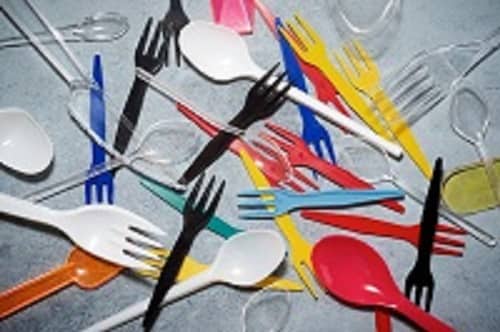
Recycling Technology – Petrochemicals Polymers – German industrial orders rebound in August but outlook uncertain 09-10-2023
Plastic Pollution








